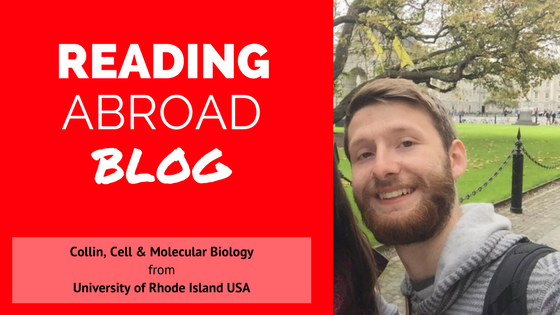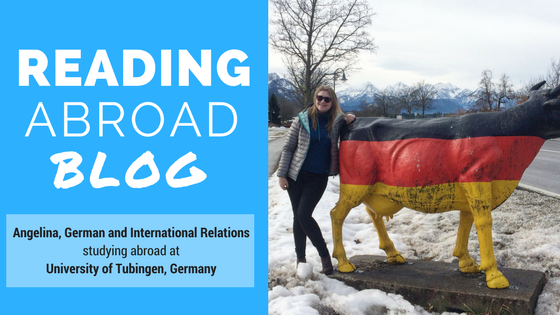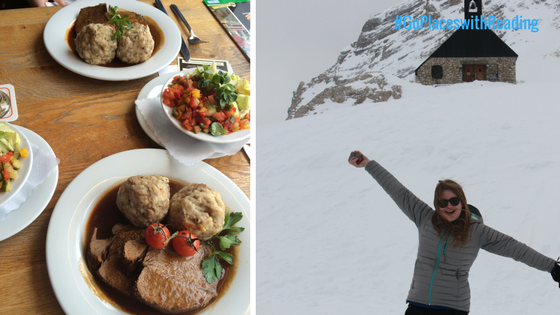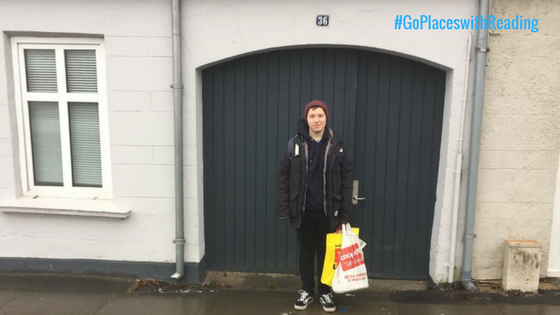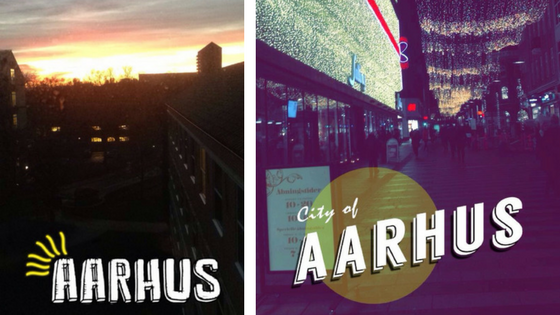
Having encouraged 100’s of UoR members of staff to participate on the Erasmus+ staff mobility programme over the years I realised that I had never properly participated myself.
So when Aarhus University (AU) emailed to highlight their Staff Week, with a very short application deadline, I speculatively applied. There was a lingering doubt as to the relevance for an ‘old timer’ like me, but when informed of my selection almost immediately there was no easy way to back out (thankfully!). Did I really have the time to take a week away from work? Not really, but too late…
Was it worth it? Absolutely – 100%.
The 4 day programme consisted of some fantastic sessions run by AU colleagues & external speakers covering a wide range of mobility and internationalisation topics. These included the ‘staples’ of any Erasmus / Study Abroad office e.g. Orientation & Welcome programmes (analysis / innovation); Study Abroad Promotion, pre-departure & re-entry activities etc. There were intriguing sessions about Danish Education and the plethora of ongoing national educational reforms, AU’s ongoing internationalisation plans, institutional priorities and ambitions. There were Faculty lead introductions, campus tours and sharing of detailed local-level information and insights. All very useful and thought provoking. However it was the non-standard content that was truly engaging, including:
– an informative session about Behavioural Design, provoking a lot of group discussion as to its relevance to and appropriateness for Study Abroad activities;
– the HR Director of LEGO – preaching to the converted – noting that Study Abroad demonstrates curiosity, which is the main attribute LEGO looks for in its recruitment of new staff. Study Abroad = International Mindset = Open Mindset = Curiosity. It’s nice to feel validated.
 The highlight (for me at least) however was a very passionate talk by an Aarhusian (?) who had set up the Warm Welcome Society – a citizen led initiative to welcome all new arrivals to Aarhus – Danes, students, workers, immigrants etc. He explained the rationale, the history and its development, and how citizens had worked outside of and recently with the municipality in helping to try to make Aarhus one of the most ‘stranger’ friendly cities in Europe. Best described as GIVEISM, there was now an established network in place to help make all new arrivals welcomed in Aarhus and giving them the opportunity to truly be part of their local communities. I think he polarised opinions, but I loved his view that we need to THINK BIG to make any meaningful change! Relevance to Study Abroad? Loads – so many ideas to plunder, but it generated and inspired tangents that will hopefully help ESAO further develop our activities.
The highlight (for me at least) however was a very passionate talk by an Aarhusian (?) who had set up the Warm Welcome Society – a citizen led initiative to welcome all new arrivals to Aarhus – Danes, students, workers, immigrants etc. He explained the rationale, the history and its development, and how citizens had worked outside of and recently with the municipality in helping to try to make Aarhus one of the most ‘stranger’ friendly cities in Europe. Best described as GIVEISM, there was now an established network in place to help make all new arrivals welcomed in Aarhus and giving them the opportunity to truly be part of their local communities. I think he polarised opinions, but I loved his view that we need to THINK BIG to make any meaningful change! Relevance to Study Abroad? Loads – so many ideas to plunder, but it generated and inspired tangents that will hopefully help ESAO further develop our activities.
On top of the formal sessions there was plenty of networking and discussions with the 28 other participants from all over Europe, the USA, Peru, China and Japan. Each had their own stories, expertise, experience and opinions – I learnt something from everyone, in different ways.
In conclusion, I would massively encourage anyone who is eligible and interested to participate on an Erasmus+ staff mobility week, if you have the opportunity (look at IMotion Erasmus Staff week to see if there is something that interests you!). If the advertised content appears relevant, and you are willing to get involved, then there could be a wonderful learning opportunity awaiting!
Contact us in the Erasmus & Study Abroad Office ESAO (studyabroad@reading.ac.uk ) if you would like any further info about Erasmus+ Staff Mobility.
Marcus Dowse
Erasmus & Study Abroad Manager





